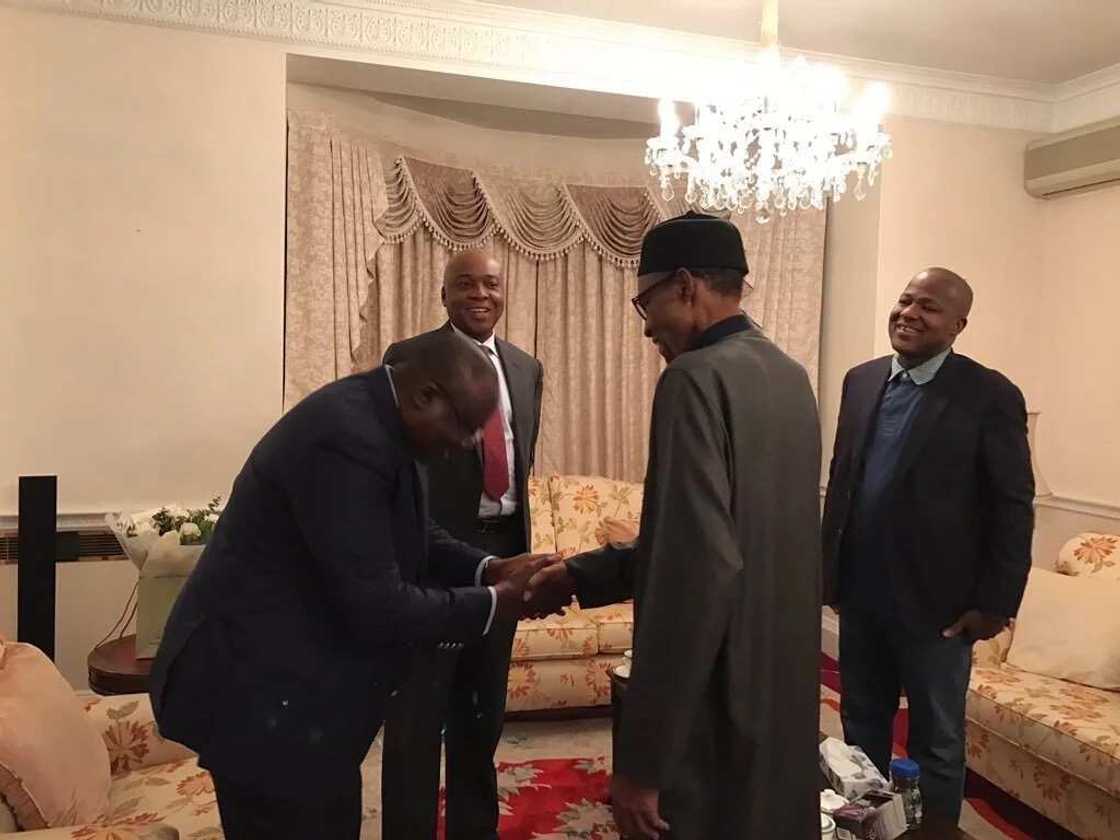Buhari has been ill for six weeks, but the country still needs governing - The Economist
- The international media has been beaming its spotlight on Nigeria recently
- This is due to the medical vacation of President Muhammadu Buhari
- The Economist has been consistent in its criticisms of the president
British weekly magazine, The Economist has stated that Nigeria’s best chance of reform in the short run is for President Muhammadu Buhari to stay longer in London.

Buhari has been out of the country since January 19, receiving treatment for an undisclosed illness.
There could hardly be a worse time for the 74-year-old former military dictator to be incapacitated. But much of the blame for Nigeria’s current economic troubles can be laid at his door.
Buhari was inaugurated soon after the collapse of global oil prices. But instead of accepting reality he reverted to policies he implemented when last in power in the 1980s, namely propping up the currency. This has led to shortages of foreign exchange, squeezing imports.
The Central Bank of Nigeria (CBN) released the naira from its peg of 197-199 to the dollar in June 2016, but panicked when it plunged, pinning it again at around 305. Exchange controls are still draconian.
READ ALSO: Opinion: Buhari should continue to rest
Consequently, many foreign investors have left, rather than wait interminably to repatriate profits.
“The country is almost uninvestable,” says one. Importers that can’t get hold of dollars have been crippled. “To take a bad situation and make it worse clearly takes a bit of trying,” says Manji Cheto, an analyst at Teneo Intelligence, part of an American consultancy.
By Monday, February 20, the naira had sunk to 520 on the black market. It has since recovered by around 13% after the CBN released dollars and allowed posh Nigerians to buy them cheaply to pay for school fees abroad.
Nigerian officials worry that the inevitable inflationary spike could lead to unrest, particularly if they are forced to raise subsidised petrol prices.
It is also anathema to President Buhari, who is thought to blame an IMF-advised devaluation for the coup that ejected him from power in 1985.
“They all know what needs to happen,” says a Western official of the nominally independent central bank’s leadership. “But somehow they don’t dare to [do it].”
The IMF predicts Nigeria’s economy will expand by 0.8% this year. That would lag far behind population growth of around 2.6%. But the government will tout any recovery as a victory.
“That’s the real danger, that they will take that as validation their policies are working,” says Nonso Obikili, an economist.
Meanwhile, Nigeria continues to take out expensive domestic and foreign loans. While debt remains relatively low as a proportion of GDP, at around 15%, servicing it is eating up a third of government revenues.
After a $1bn Eurobond issue was almost eight times oversubscribed last month, it plans to issue another $500m one this year. Officials have also said that they want to borrow at least $1bn from the World Bank. That remains contingent on reform.
READ ALSO: Buhari's sick leave re-energizes Nigeria's presidency - Reuters
If President Buhari remains in London much longer, his absence could provide a window for Nigeria’s technocratic vice-president Yemi Osinbajo to push through a proper devaluation.
Osinbajo, currently in charge, has proved an energetic antidote to his ponderous boss, visiting the Niger Delta for peace talks and announcing measures intended to boost Nigeria’s position in the World Bank’s Ease of Doing Business rankings, in which it currently ranks a lowly 169 out of 190.
Source: Legit.ng


